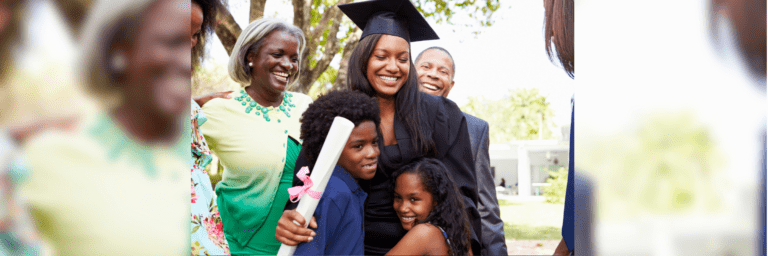Carrying on the Two-Generation Drumbeat
During my internship with Ascend at the Aspen Institute, I learned something ingrained within me throughout childhood has become an important approach to moving families toward opportunity. Now I step back and wonder how I didn’t originally recognize it as something unique and special during my upbringing. Ascend at the Aspen Institute focuses on two-generation approaches, which provide opportunities for and meet the needs of children and their parents together. A central principle of this framework is that when two generations complete quality educational programs at the same time, the long-term impact is measurably greater. In fact, there is an $81,500 median income difference for a mother with a college verses a high school diploma. That money greatly affects the opportunities for her children.
My mother, a high energy, dynamic visionary, decided to pull away from her science-journalism and field biologist work when she gave birth to my sister and me within a year and a half – a tough transition for my parents professionally and financially. My father is a minister, and my sisters and I were raised in the Rectory fifty feet from the church. The campus was bustling day and night with families from all ages and walks of life, looking for community, support and faith. Over time, our small town adopted this venue for a variety of functions, and the campus became the garden bed of many grassroots projects.
My mother recognized a void in our small community, and being musically gifted, swapped her swing balances and calipers for guitars and maracas. She started a music and movement class in the parish hall of the church. But there was a catch. The class was designed for parents or caregivers with their children. It was no “drop and hop session” for adults weary of the young ones. Her classes filled instantly in our rural town, and she attracted all combinations of the two-generation couples, including father/child, aunt/child, grandparent/child or neighbor/child. Young parents committed full time to their work and their children could come on weekdays, weekends, during church, or find her at the local library and community center. Through music and movement (and a lot more), the two-generation, community-based program fostered many unlikely friendships and professional relationships. Young, and sometimes lonely parents with children came together to sing, share stories, and discuss development benchmarks within their offspring and families. These single trees and their saplings grew stronger and happier together when they created their two-generation forest.
My mother said that when it came to class participation, the children were not her main concern. Her biggest obstacle was unlocking the parents. They were often reluctant to engage with their children musically or move their bodies. They were almost frozen in their ability to express themselves freely. It took time, and she was patient. She needed to establish comfort and trust. I taught many classes with my mother and was inspired by the profound mutual bonding that was taking place between the adults and children, along with each generation’s peer group. I have experienced first-hand, the two-generation approach to building social capital and family bonding. The impacts are deep and wide, fostering social capital and community cohesiveness.
The approach is applied to different settings in programs, policy, and research and produces a number of outcomes. I observed that when my mother brought her two-generation music education to afterschool programs, evenings in the library, and even to a women’s penitentiary day-care, parent-child and the parent-to-parent relationships built stronger communities. By employing this approach in organizations like Promise Neighborhoods and United Ways, the Ascend Network is creating platforms for scale to create change in the lives of families.
The research supports the emerging impact of this approach on low-income individuals and families throughout America. Though I did not recognize it as a child, I now understand how building social capital among two generations had a powerful effect on my community. Strengthening families from one generation to the next is a recipe for their long-term health and ultimately for sustainable communities – and America.
Related Posts



